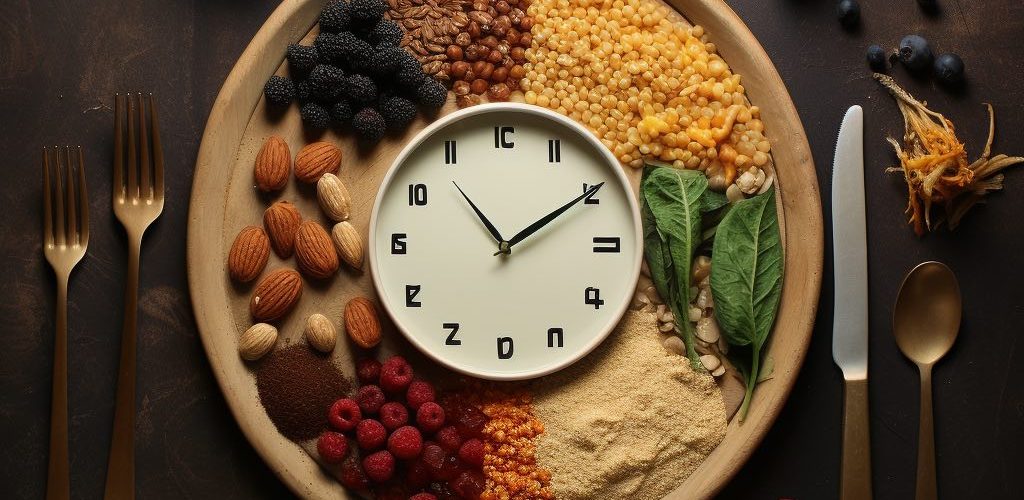
It is important to address the importance of what you do in between eating what you are eating — this is just as important as the actual eating. For the vast majority of our lives, after all, we are not putting something into our mouths, chewing or swallowing.
Much has been made of the ‘grazing’ technique, whereby you will constantly be going from one meal to the next, eating several meals throughout the day of smaller portion sizes. If you’re already healed and just having fun and enjoying life, by all means, eat as frequently as you want.
If you are more interested in achieving a transformative effect for your body and overall health and wellness, consider what happens when your body goes a significant amount of time without eating. I want to address the self-healing nature of what your body will do in the absence of food consumption. Digesting takes work from the body, which directs your energy into this basic, somewhat menial task. When your body is not digesting, life-force energy is directed onto other ventures, such as healing and regeneration — these are the more aspirational potentials that your body can achieve if unhindered by excessive digestion.
This is not per se an exploration into what happens when you go a very long extended time without food (covered more extensively in the segment ‘Water Fasting’), although the same principal applies. In fact, you can get tremendous health benefits when you don’t eat food for a long time. However, it is likely not practical to be fasting within your normal routine of activities, whether that be your work or personal obligations. Extended fasting from all food for a whole day or multiple days can be very disruptive to normal functioning — people tend to avoid it for that reason and I can understand that.
What you can do is practice sporadic ‘fasting’ integrated within your overall daily schedule, on a more informal basis, with an extra amount of time devoted to this abstinence from food. This can give your body the benefit of achieving balance and healing when not eating in between meals.
When you do practice this, you’ll likely feel increased body sensation and ultimately a greater feeling of hunger before your next meal. Your body will likely become more toned and your metabolism will get a boost, and you can potentially turn over old fat stores into energy. From a detoxification standpoint, the more emptied out your body is, the more potent the transformative chemistry and revolutions of your body turning over itself will be. You should feel also an increased bodily sensation of detoxification and purification. There are numerous other individuals aside from myself who are much better versed at describing the benefits of intermittent fasting, and you can look up extremely educated people documenting the science of it and the benefits to systems including fitness, immune function, brain and psychological well-being, and more.
So where can you fit it in? Here are a few ways. For example, you can start breakfast an hour or two after waking. This is probably the best example, because as you wake up from slumber, your body is still in the detoxification and purification mode, which you can encourage it to continue doing until you break this fast with your first meal.
Are you in a situation where it seems like you absolutely have to eat before you leave the house in the morning? In that case, try and do everything else in the morning before you eat, such as preparing things for your day, stretching, or taking care of other things that you would normally do later in the day. Try to work up an appetite — it’s a good natural stressor on the body, just like stressing the muscles in a controlled fashion creates strength and resiliency in terms of physicality. Hunger too can do the same thing if you apply it judiciously. Don’t ever eat just to eat, when you’re not really hungry — this overabundance of comfort can cause early and excessive aging.
If you can go a few hours without eating first thing in the day, that would be amazing. If you could completely skip breakfast and just wait until lunch, this would be even more highly beneficial. However, this is a good time to bring up that what you’re trying to do here is a balancing act. If you go too long without food, you can wipe yourself out. Your energy can drop through the floor, and you can become a zombie for a couple hours. This can affect your work performance and/or your ability to relate to other people and think clearly. If you get too ambitious with morning fasting, then you might eat lunch and overeat and eat junk food and it may start a whole vicious cycle. So just explore this balancing act and get to know your limits and what works for you.
Another thing you can do is to eat dinner a bit earlier. If you go to bed at 10:00 or 11:00pm, try and eat no later than 6:00pm or 7:00pm — the earlier the better. If you could go to bed and feel just a tiny big hungry (not enough to get up and make yourself a late-night snack obviously because that is just bad on so many levels) then this would be great. You should awake the following morning feeling at least a bit hungry. Your body would have been regenerating itself all night. If you could then take some extra time the next morning on that empty stomach — as it rumbles and gurgles — and delay your first meal, you’ll get even more benefits.
Something else you could do would be reducing the number of meals you’re eating in a day, while increasing calories per meal. When I did this, it was a game-changer for me in terms of performance, mental stamina and energy throughout the day. I went from eating three consistent square meals per day to two meals. Although this is not always the case, it is normally what I’ll do. Just to be clear, these are typically big, filling meals, at about 1,000 to 1,500 calories apiece and extremely packed with nutrients.
I actually got into this rhythm just naturally and intuitively as a way of achieving balance within my health and energy as well as my busy lifestyle. I would typically awake let’s just say for example at 8:00am. I would then try to wait until around 10:00am to eat breakfast. Then, with breakfast being so filling (I have learned that adding dates in to a smoothie because of the caloric density can cause me to stay full longer), I won’t get really hungry again until around 4:30pm or 5:00pm, at which point I’ll make dinner and eat again at around 5:00pm or 6:00pm. That’s it! I get to practice intermittent fasting every time I eat this way. It also helps from a work standpoint and schedule standpoint because it’s less times I have to stop and worry about preparing food and feeding myself as well.
If you can exercise on an empty stomach, this only compounds the benefits of this fasting principle. If you could wake up, with a slight hunger from having not eaten since the previous day’s early dinner, and get up and go straight into a workout for 30 minutes or 1 hour, this would be a great formula. Then, when you’re done with your workout, go ahead and spend another 30 minutes or 1 hour starting your day before you eat breakfast. You’ll likely feel incredibly wired during this. It’s a tough habit to get into, but you’ll be putting yourself on the side of the angels if you can form this habit and do this at least once or twice per week.
Trust me, I understand how voracious the appetite can be. You want to be aware of that and not go overboard — otherwise, the pendulum can swing the other way and you’ll end up being so famished that you risk making poor food choices while in an impulsive hunger frenzy. I realize that while it sounds simple and all to skip or delay a meal, in reality, when hunger strikes in it can be an all-encompassing experience for you and you can feel like you’re being taken over. Stay strong, and keep working your way to where you want to be steadily.
To the extent that you can embrace this feeling of hunger and roll with it, you’ll accelerate your healing process and the natural mechanism of the body to mock itself up into a new version of yourself and heal and regenerate the parts of the body that need to turn over. Embracing the obstacle is the way forward, as it has been said — so just give it a try, and just embrace this uncomfortable sensation for as long as you can bear. If you can’t make it 1 hour with intense hunger pangs, then do it for 30 minutes, or 15 minutes, and just keep working on it. Your ancestors did it for countless generations wandering through the wilderness, after all.
You can do it too!
